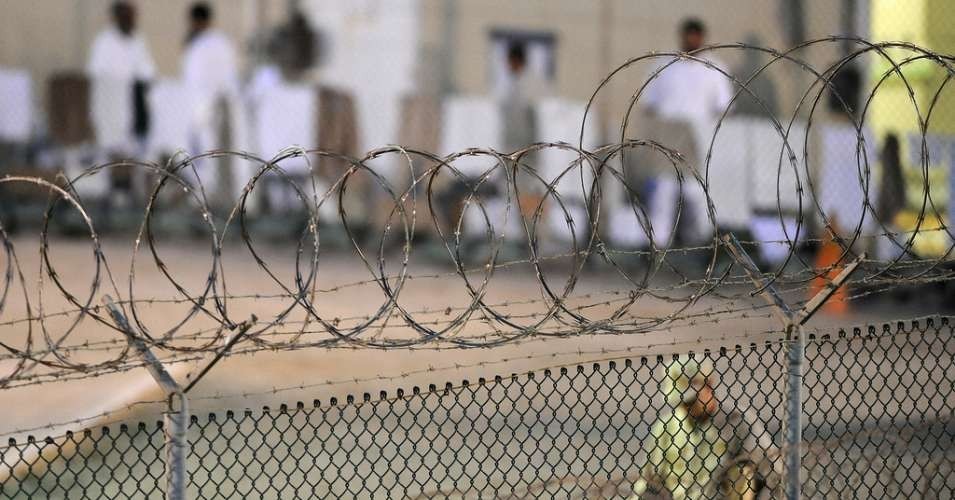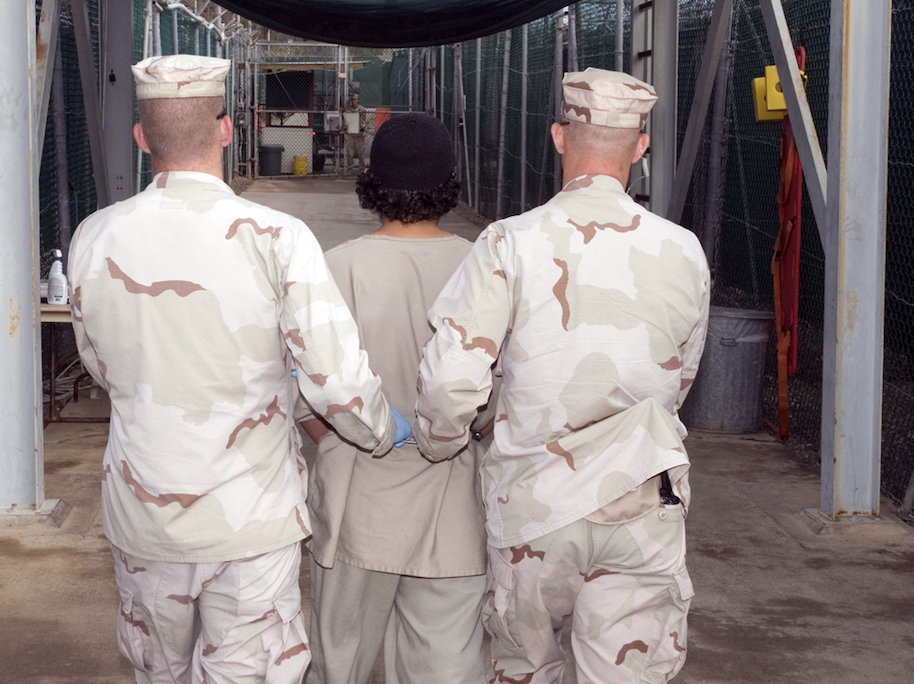Lawmakers raised the case for closure days after the international Red Cross canceled its visit to Guantanamo Bay, citing concerns over the pandemic.

(Joint Task Force Guantánamo Bay/Flickr/cc)
Eleven Democratic senators said Monday that the Pentagon’s refusal to provide details about its Covid-19 mitigation strategy at Guantanamo Bay, where 40 detainees are currently being held, only bolsters the case for shutting down the U.S. military prison in Cuba.
Lawmakers including Sens. Elizabeth Warren (D-MA), Bernie Sanders (I-VT), Ed Markey (D-MA), and Ron Wyden (D-OR) denounced the Department of Defense’s response to their earlier letter, in which they demanded to know specifics regarding the government’s plan to keep Covid-19 from spreading in the facility, where a number of medically vulnerable detainees are being held indefinitely.
In addition to the prison being “inconsistent with our values” and doing nothing to keep Americans safer, the senators said Monday, the Pentagon’s lack of transparency regarding containment and mitigation methods makes it clear that Guantanamo Bay must no longer be used to detain people captured over the last two decades as part of the “War on Terror,” the majority of whom have not been charged with a crime.
Concern Expressed in Late May
In late May, the senators expressed concern to Defense Secretary Mark Esper about the facility’s ability to provide medical care to detainees who contract Covid-19, given “the serious and deteriorating health conditions of detainees, the deficient infrastructure to care for complex medical needs at the prison facility, and the strict prohibition on detainee transfers to the United States.”
The senators’ letter came two months after the first case of Covid-19 was reported at the Naval station, when a sailor who was reportedly not involved with prison operations tested positive in late March. Another case was reported in April before the Pentagon ordered the base to stop reporting cases to maintain “operational security.”
The Navy announced in March that it was implementing deep-cleaning measures, social distancing guidelines, and limits on group gatherings to prevent the spread of Covid-19. Since then, Matthew Donovan, an undersecretary of defense in charge of personnel and readiness, has also informed Congress that officials at Guantanamo Bay are requiring temperature checks for anyone who enters buildings there and that the prison clinic has six ventilators.

Entrance to Camp 1 in Guantanamo Bay’s Camp Delta, 2005. (Kathleen T. Rhem. Wikimedia Commons)
Still, the senators wrote in their letter to Esper, “it remains unclear whether the Department’s coronavirus infection control efforts will be enough to protect the health of the 40 detainees at the Guantanamo prison facility, six some of whom are ‘aging detainees [who] could require specialized treatment for issues such as heart attack, stroke, kidney failure, or even cancer.'”

Captive being escorted for medical care, Guantanamo Bay Detention Center, December 2007. (U.S. Navy, Michael Billings, Wikimedia Commons)
The lawmakers requested specific information regarding procedures in place to address confirmed or possible Covid-19 cases, whether independent medical experts are available, and the status of the Pentagon’s appointment of a chief medical officer at Guantanamo, as required by the National Defense Authorization Act.
Four Paragraphs
Donovan replied to the senators’ letter last month, offering just four paragraphs assuring them — without any details — that Joint Task Force Guantanamo “has been following a detailed Covid-19 contingency and mitigation plan,” that some detainees have “medical expert consultants for the purposes of litigation, and that the Pentagon is working to fill the position of chief medical officer at the base.
“The Pentagon’s response leaves doubts about the Guantanamo prison’s capacity to protect military personnel and detainees from Covid-19 and is a reminder that the United States should work to responsibly close this facility,” said the senators Monday.
The oldest detainee at Guantanamo Bay will turn 73 this month, and a number of people held there “retain the mental and physical wounds of torture and may be at greater risk of serious medical complications from Covid-19,” the senators said in their statement.
The senators’ statement came days after the International Committee of the Red Cross canceled its planned quarterly visit to Guantanamo Bay, citing concerns over the coronavirus pandemic. With the visit canceled, detainees at the facility will go the longest they have since 2002 without confidential discussions with an independent medical officer and the ability to relay messages to family.
This article is from Common Dreams.
Please Contribute to Consortium News
on its 25th Anniversary
Donate securely with  PayPal here.
PayPal here.
Or securely by credit card or check by clicking the red button:
